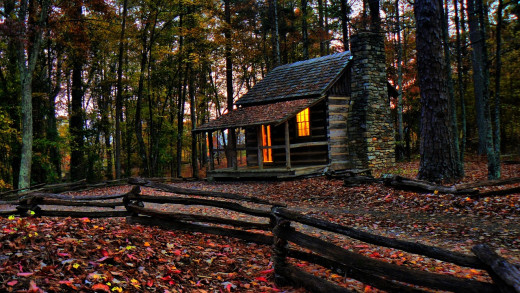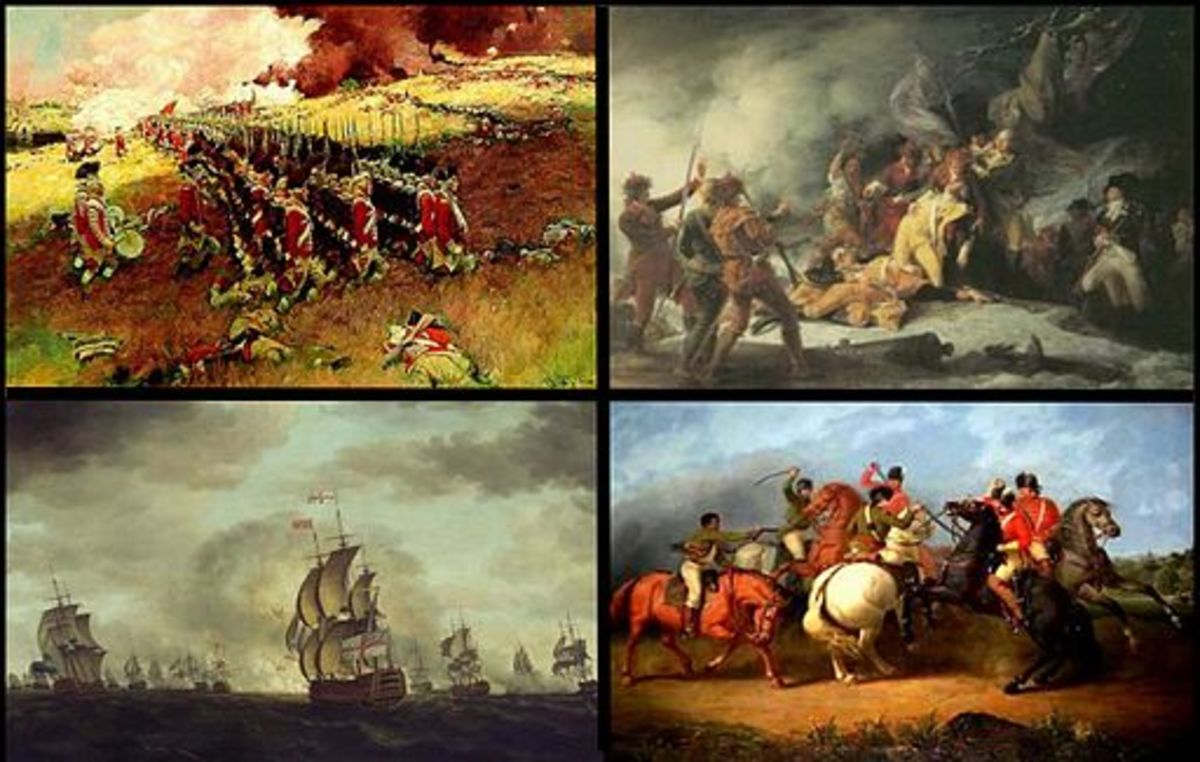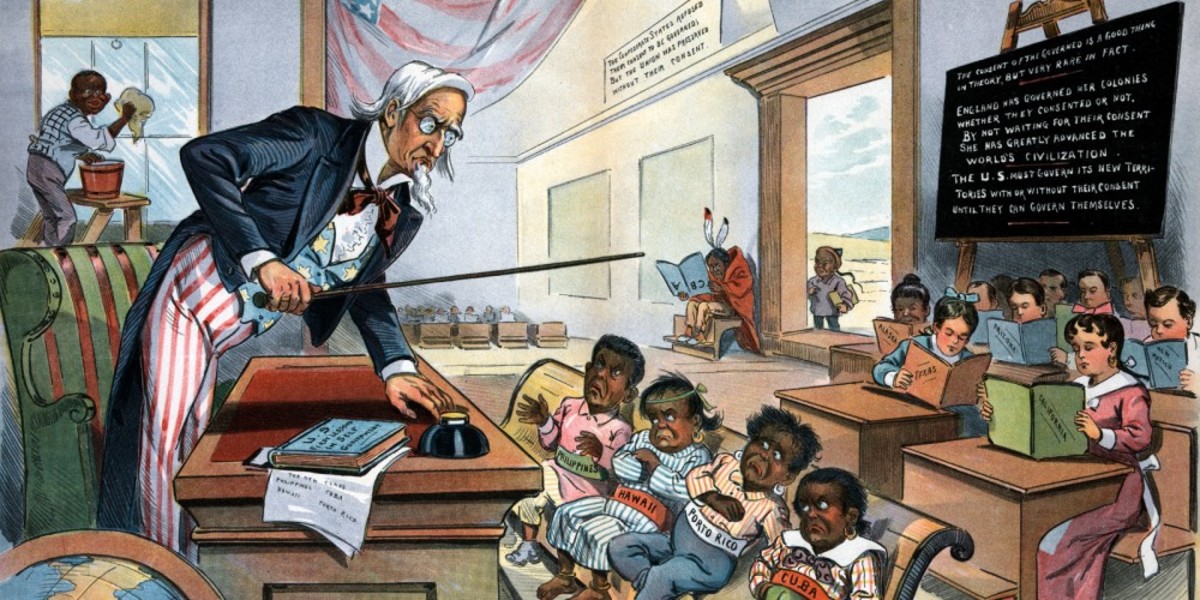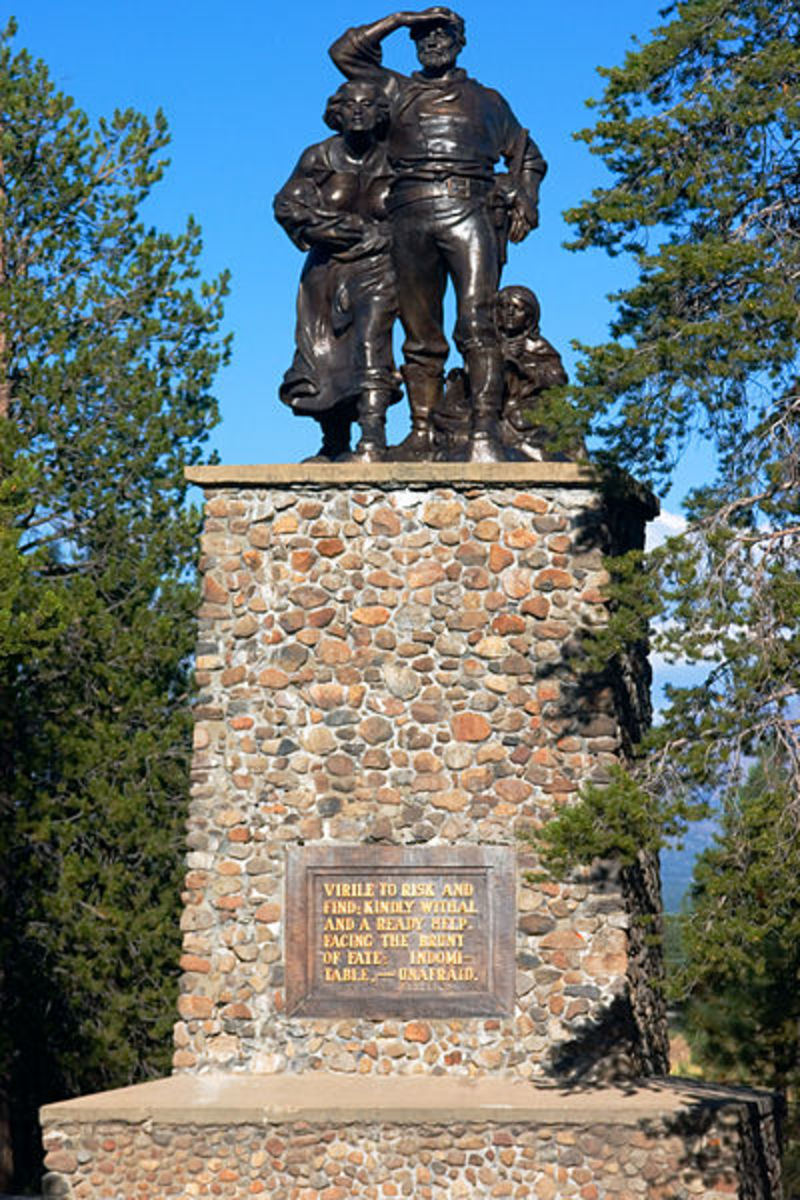- HubPages»
- Education and Science»
- History & Archaeology»
- History of the Americas
Daily Frontier Life in America in 1800 - When Visitors Came to Call
A welcome sight when traveling in 1800

Daily Life in 1800 America
If you lived in 1800 in America, more than likely you didn’t live in a city or even a small town. You probably lived out in the rural areas of the country, and your family produced most of its own necessities right there on your own farm. Everyone in your family, from the very young to the very old, worked from sunup to sundown. You probably had few visitors, and your nearest neighbor probably lived several miles away. For months on end, the only people you probably saw were members of your own family. When visitors came to your door, it was not an inconvenience. Your family, without a doubt, welcomed them with genuine hospitality. These visitors were a welcome sight because they offered a break from the everyday drudgery. Visitors meant it was time to pull up a chair and bring out the musical instruments. It was a time for celebration and socialization.
The fact that you put out the hand of welcome was a blessing for the visitor too. Your farm was probably the only one they might pass all day; so when anyone drove on the road where your home was, they knew to expect a warm meal and friendly folks with which to converse.
You wouldn’t know, of course, that they were coming. No one had phone or computer access. Mail wasn’t as reliable in the rural areas as it was in the cities, so you might not get a letter informing you that company was coming. Besides, even if you did know that someone was going to visit you, you didn’t know exactly what time or what day they would arrive. Traveling was, after all, difficult at best. Therefore, the first warning that you got that you were going to have guests on any given day was when your dogs greeted them at your gate, but that was fine because company was here!
Sharing the Noon Meal in 1800
If your company arrived around the noon hour, they would enjoy the noonday meal with you. If you already had dinner cooking (as the noonday meal was called in those days), you would send one of the children out to the garden, (or if the garden wasn’t producing that time of year, out to the root cellar) to add more vegetables to the pot on the stove. You might even whip up another batch of cornbread just to make sure that everyone was well fed. Sometimes your visitor would bring in hand fresh meat that the visitor had hunted on the trail before arrival, but often the visitor came empty-handed. That was fine though, because if you were on the road, likely these same people would offer you a home-cooked meal as well.
Entertaining Overnight Guests in 1800
If the visitor came for the noon meal, they were often gone that afternoon so that they could continue their journey, but if they arrived at suppertime, (evening meal) they usually expected to spend the night. You did not consider yourself put out because they expected to spend the night either. It’s just the way things were done in those days. Matter of fact, you’d have a party. Someone would bring out whatever musical instruments were available, the furniture would be kicked back, and everyone would spend hours dancing and tapping their feet to the music. The man of the house would tell one of his stories, or someone would sing or read poetry and everyone would enjoy one another’s company. Because everyone knew that there were chores to do in the morning, they didn’t usually stay up too late. Soon it was time for bed.
You couldn’t send your visitors out to the barn to sleep either. You shared what you had, and if there weren’t enough beds for everyone (and there usually weren’t,) you gave them your bed, and you slept on the floor. Sometimes there’d be so many unmarried people and your home would be so small that a special sleeping arrangement would be used. The younger children would be put to bed on the bed then straw would be used to cover the entire floor. The husband and wife of the house would lie down in the middle of the floor. Then all the females would lie on the other side of the wife and all the males would lie on the other side of the man. This way, there would be no hanky-panky going on. It worked better than a bundling board for keeping the young ladies unmolested. (A bundling board was put between a young man and a young lady who shared a bed before marriage.)
In the morning the visitors helped straighten everything from the evening before. You would help them prepare to continue their journey. You might even offer them your leftover cornbread. There was never any money that changed hands. You didn't expect it, and your guests wouldn't offend you by offering any. It was just the way things were done back then.
This content is accurate and true to the best of the author’s knowledge and is not meant to substitute for formal and individualized advice from a qualified professional.
© 2012 Cygnet Brown



